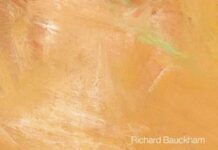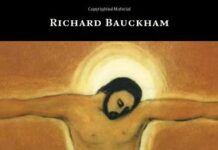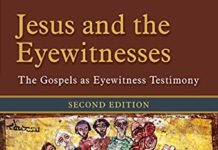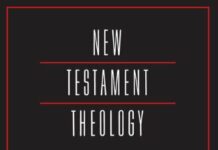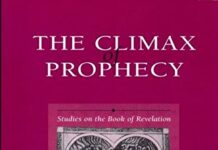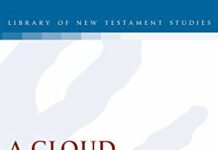
Ebook Info
- Published: 2011
- Number of pages: 270 pages
- Format: PDF
- File Size: 2.12 MB
- Authors: Richard Bauckham
Description
The Bible and Christian tradition have, at best, offered an ambiguous word in response to Earth’s environmental difficulties. At worst, a complex, often one-sided history of interpretation has left the Bible’s voice silent. Aiming to bridge these gaps, Richard Bauckham mines scripture and theology, discovering a firm command for Christians to care for all of God’s creation and then discusses the generations of theologians who have sought to live out this biblical mandate. Going beyond Old Testament human dominion, Living with Other Creatures consults scripture in its entirety and includes Jesus’ perspectives on creation, novel approaches to reading the gospels, and some of the most well known “ecologists” throughout Christian history. The result is an innovative and enriching treatise that reminds readers of God’s whole creation―and humanity’s place within it.
User’s Reviews
Editorial Reviews: Review Bauckham reminds the reader that, as Creator, God delights in and cares for all creation…. He wishes to recover the biblical view of human solidarity with the rest of creation by establishing creation’s own inherent value. (Five-star review) — Bill Walker ― Christianity Today[Bauckham] aptly demonstrates that humanity is causing an ecological catastrophe that has been predicated on theological convictions. For this crisis to be remedied, it is necessary for Christians to shift their ecological outlook. — Nick Elder, Marquette University ― Theological Book Review… a fine supplementary text in seminaries and graduate level classes. — Christina Richie, Boston College ― Journal of the Evangelical Theological Society… contributes toward opening exegetical and theological vistas that have previously been closed. — J. David Stark, Adjunct Online Professor of Judeo-Christian Studies ― Stone-Campbell Journal… a tremendous amount of value in these essays. — Phillip Sherman, Maryville College ― Review of Biblical Literature[Bauckham’s] mature reflection has resulted in a book that is exegetically and theologically rewarding. — Beverly Roberts Gaventa ― The Christian Century Review In this exciting volume, Bauckham weaves together Jesus’ teaching of the kingdom of God, the Jewish traditions of animal compassion, St. Francis, the Apocalypse, and Christian mystics to make the case that creation’s praise of God―independent of humans―is foundational to the Christian tradition. The result is an important, highly recommended reading of the biblical mandate for ethical engagement in today’s ecological crises. — Barbara Rossing, Professor of New Testament, Lutheran School of Theology at Chicago and author of The Rapture Exposed: The Message of Hope in the Book of Revelation From the Back Cover Unveiling Christianity’s mandate for creation care About the Author Richard Bauckham is a fellow of the British Academy and the Royal Society of Edinburgh. He is the author of several books, including The Bible and Ecology: Rediscovering the Community of Creation and J esus and the Eyewitnesses: The Gospels as Eyewitness Testimony, winner of the 2009 Michael Ramsey Prize for Theological Writing. Read more
Reviews from Amazon users which were colected at the time this book was published on the website:
⭐I have not read a better presentation of Bible ecology. It is deep scholarship, so readers must be ready to read carefully and think deeply. The these is we humanas have to recognize that we share the planet with other of God’s creatures. The essay on Jesus and the Wild Animals one of the chapters is worth the price of the book. Baukham appears to control all the extant literature of Israel and early Christianity and brings it to bear convincingly on his subject.
⭐I cannot say that I agree with everything in this book, but even things I am unsure about, the author provides a well-reasoned case for saying. There are some very insightful interpretations of key Bible passages, and the overall theme of the Bible promoting a Christian lifestyle that is more respectful of the Earth and its animals is hard to contest. The detailed study of the four angelic living creatures is quite interesting, and the looks at creation passages like Job 38-39, Psalm 104, and Genesis 1-2 are well done.True, he does jump around a bit, due to the essay format used, but the book is still quite good.
⭐This book was a mixed bag for me. It started off good in chapter 1 by claiming that we must focus on all of scripture if we are to understand what it means to dwell as one of God’s creatures here on earth, and that we must think theologically not just in our vertical relationship, but our horizontal relations as well. There is great material on Genesis 2 that is presented here dwelling primarily on our connectedness with the rest of creation. Hierarchy/kingship gets good treatment and is presented as brotherhood/sisterhood among, rather than an authoritarian relationship over creation. For Bauckham (reflecting here on Job), a human is “a creature among other creatures and in a cosmos that has its own meaning and value independently of us.” This understanding becomes clear as we look at creation, independent of us, as worshipping it’s Creator.Chapter 2 was a great analysis of the Christian understanding of dominion throughout history. This chapter is a challenge to Lynn White’s influential 1967 article “The Historical Roots of Our Ecologic Crisis.” Bauckham here writes on an often ignored part of the ecological understand in Christian history: the hermits. How quick we are to forget the Desert Mothers and Fathers, the Celtic saints, and the Franciscan’s, for example. Bauckham also challenges the dangerous thoughts put forth by Frances Bacon and René Descartes. This was a very informative section and was well balanced in acknowledging ways in which Christian tradition has, at times, led to dangerous anthropocentric thinking instead of a proper theocentric position (as in the aforementioned saints).Chapter 3 is where things took a turn for me. There is some very interesting material here on ecology in the Synoptic gospels, particularly dealing with Mark 1:13. But this material is visited, sometimes verbatim, three times in the book. Chapter 5 is the most detailed exegesis of the text, but much of it is repeated material. The chapters are based on various lectures that Bauckham has given and it becomes clear that there is an overlap in material which makes the reading a bit cumbersome. Still, there is good worked to be gleaned from here as with his subsequent chapter on the sermon on the mount.The end chapters in the book deal with the topic of “creation’s praise” in heaven and focus heavily on Revelation 4. While there is a strong exegesis of the text, I am not convinced by Bauckham’s claim that it is arrogant to think of humanity in a priestly role. There is zero engagement here with the work of John Walton, for example, in his presentation of the earth as temple with humanity serving as it’s priests. Neither is the “kingdom of priests” dealt with sufficiently, in my estimation. I don’t necessarily disagree with all of the authors work here but I simply don’t see it as a sufficient argument against the priesthood of humanity. Is priesthood rightly seen as a hierarchal position of power in the first place?There are some gems in this book and it is worth your time if you are interested in researching the topic, however it is repetitive and not convincing (to me) in it’s position against the priesthood of humanity.
⭐Summary In this work, Richard Bauckham argues that man has a vertical relationship with God and a horizontal relationship with his fellow creatures. He rejects a hierarchy in creation, a rule of creation by mankind, and a pragmatic use of creation by mankind. Instead, he believes mankind should seek to glorify God by acknowledging his interdependence on his fellow creatures, and their unique relationship with their Creator apart from humanity. In order to prove his thesis, Bauckham (1) exegetes pertinent texts from both the Old and New Testaments and other Jewish and Greek writings, (2) reveals God the Son Incarnate’s relationship with his fellow creatures, (3) discusses the generations of theologians who have and have not possessed a proper relationship with their fellow creatures, and (4) reveals the contemporary threat to biodiversity and suggests a proper Christian response.Strengths The research and language work Bauckham carries out in this work are impressive. The footnotes and Bibliography are worth the price of the book. I also appreciated Bauckham’s argument that Jesus was not a vegetarian (103-104; although I think this argument undercuts his thesis since Jesus ate His fellow creatures: animals). Finally, Bauckham persuasively argues that man’s fellow creatures have a worshipful relationship with God apart from their relationship with humanity (He, however, overstates this truth without textual warrant).CRITIQUEStructure First, because this work is made up of a few pre-published essays and/or chapters from other works, the logical order of the book is not consistent or progressive. The chapters needlessly repeat various arguments found elsewhere in the book. If the book had been edited with greater care, one is reasonable to assume that a full 20 or 30 pages could have been removed, and the same arguments remain.Hierarchy Second, the main concern I have against Bauckham’s work is his overemphasis on humans being other creatures among many creatures. He neglects several realities that distinguish humans from animals. For example, Bauckham writes, “In the praise in which we gratefully confess ourselves creatures of God there is no place for hierarchy (13),” but he does not recognize that animals are cursed based on humans and redeemed based on humans as well. Jesus, obviously, was/is fully human and was not/is not an animal. The blood of animals could neither redeem humans nor any other aspect of creation because the curse was brought through humans to all creation. Humans have a greater purpose in creation than Bauckham argues. God the Son Incarnate–fully human–proves this truth. Furthermore, one must note that Bauckham argues men are more valuable than animals, but not in a hierarchal way (95-96). I do not understand how one aspect of creation can be more valuable than another and yet, there be no hierarchy. Bauckham argues that the story of Jesus sending the demons out of the demon-possessed man into the herd of swine in Matthew 8 does not prove that animals have no value apart from humanity (97-98). I agree in one sense, but in another sense, this story begs the validity of his thesis concerning the co-creaturely value of animals with humanity since Jesus did not have to send the demons into any animals. There are other examples in Scripture where Christ cast out demons, but did not send the demon(s) into any animals (Matt. 9:32-33; 17:14-19). Bauckham argues that the destruction of these pigs was preferable to the destruction of a single human personality, but if animals have a horizontal relationship, an “other creature” relationship with humanity beyond finitude, then why did Jesus send them into the swine? (I assume there was some other reason, a teaching reason, to prove that these demons were real, and the death of the swine proved the validity of Christ’s authority over the demonic realm. According to Matthew 8:33 the herdsman ran into the city and shared what happened. At least this reason is one possible answer that will allow for Bauckham’s thesis, but Bauckham does not argue this.) Moreover, Bauckham argues that according to Psalms 148:13, “God’s name alone is exalted: there is no place for worship for the exaltation of any creature over another” (151). He misses the reality that if man views animals as less valuable than himself, he is merely agreeing with Scripture. Bauckham is aware of man’s greater value, but nevertheless, makes statements like the one above that blurs the clear Scriptural line between humans and animals. The Biblical answer is for man to understand His own relationship with God, not his “creaturely” relationship with other creatures. For, if man loves God with all His heart, soul, and mind, he will treat God’s creation with great care in humble obedience. In other words, the answer for the ecological crisis is to exalt God not creatures.Worship Third, Bauckham argues that creation always worships God based on its essence. “The creation worships God just by being itself, as God made it, existing for God’s glory. Only humans desist from worshipping God; other creatures, without having to think about it, do so all the time (12).” He believes creatures worship God with their “whole lives (150).” These sentences do not properly take into account just how the curse affected all creation. There is a real sense where all creation worships God, bringing Him glory, since creation reflects the fingerprints of its Creator; however, there is a real sense as well where Creation no longer does what it was created to do. For example, does creation worship God when it ends the lives of humans (even believers)? Does a lion that attacks a local village bring glory to God in its revealing of the curse? Sure, this lion’s great power and skilled hunting brings glory to God, but its act of rebellion against the dominion of man also reveals the curse. The lion, like the rest of creation, cries out for a Redeemer. This groaning is not worship, but a cry for redemption (Rom. 8:18-23). Additionally, I enjoyed Bauckham’s emphasis on creation helping mankind worship God as fellow creatures (12-13). I think this is true in one sense, but in another sense, creation helps mankind know how much he needs redemption. Bauckham misses the reality that humans worship God with creation even while in rebellion against Him. Mankind worships God by simply existing, for we cannot deny His fingerprints in and all around us while living in dependence on His resources and living in His world. The same goes for fallen angels. Because God created all things, all things worship God even while in rebellion against Him. In other words, creation cannot help but reflect the handiwork of her Creator. This reality is not peculiar to “wild nature.” Furthermore, Bauckham initially seems to contradict himself in Chapter 8, arguing that the Four Living creatures in Revelation 4 and 5 represent all of creation, perfectly worshipping God until the Lamb is enthroned, and all creation is able to worship God due to being redeemed. Bauckham blames this lack of worship of creation on sinful humans and fallen angels. Humans and angels despoil creation’s glory and muffle its praise (183-184). Bauckham’s answer is for humans to let creation be itself. I think this further proves that he grossly underestimates the effect of the curse on all creation (Gen. 3:17-19; Rom. 8:18-23).Dominion Fourth, Bauckham argues that the dominion man was given over creation was to let nature be itself (228-229; Gen. 1:27), but Biblically speaking, dominion is whereby man helps nature be all it can be. After all, God is the One who originally put man in the Garden, in the middle of “wild nature” to use Bauckham’s words. God told man to tend and keep His Garden (Gen. 2:15). In light of the curse, humans must help nature overcome the effects of the curse so that creation may flourish, and that we may flourish with creation as well. The answer is godlier creation care, not leaving the cursed creation to itself. Furthermore, Bauckham admits there is a “natural” extinction of animal species over millions of years, but is concerned with the increased extinction rate due to man’s interference in “wild nature.” The problem is that if animals worship God continuously by simply existing, since they always do what God created them to do, then the extinction of species should be viewed as an act of worship by creation (if one take’s Bauckham’s logic to its consistent end). My point is that Bauckham’s theology and ecology are missing an accounting for the effect of the curse on creation. One could easily blame the curse for such extinction (which I think is Scripturally warranted), but since Bauckham seeks to argue that creation (other than humans and fallen angels) always worship God, he must necessarily say that all that happens in the animal kingdom is by divine design, and therefore, good. The question of how much extinction is not an act of worship then becomes some arbitrary number. Also, if animals can kill off each other in an act of worship, and mankind is more valuable than animals, then they too should be able to kill off animals as an act of worship. I do not believe this statement, but I think it is the consistent outworking of Bauckham’s logic. I believe all creation is cursed, and such extinction is due to the curse; thus, mankind should seek to protect creation from itself. Indeed, God designed all things, but the curse has negatively affected all things. Just as God did not design sin, yet sin exists and creation lives on, God did not design animals to go extinct, but due to the curse, animals go extinct. The creation is groaning for redemption (Rom. 8:18-23). Christians should labor to bring about God’s will on Earth as His will is done in Heaven. If we assume a renewed Earth similar to the original pre-Fall Creation, mankind will tend and keep God’s paradise forevermore. We must labor to care for God’s cursed creation now.CONCLUSION In conclusion, I think Bauckham exalts the animal kingdom to an un-cursed position. Animals are not merely “cursed” because they live in creation with humans, for they were placed under the curse as well (Gen. 3:17-19). Due to this exaltation of animals beyond the curse, the entire thesis for this book fails the test of Scripture. Instead of readers adopting Bauckham’s view of mankind as fellow creatures with animals, I suggest we choose a more Biblical option. One example is from the late Francis Schaeffer as presented in his book
⭐. Schaeffer argues that God transcends all creation–mankind, animals, plants, etc.–due to His infinitude and our finiteness; however, God has a personal relationship with mankind that surpasses His relationship with the rest of physical creation: animals, plants, etc. Therefore, man is a fellow creature with the rest of creation concerning the infinite God, but mankind is an exalted creature in relationship with the personal God. Thus, instead of Bauckham’s exaltation of other creatures or the exaltation of humans as gods over creation, one should realize man is a fellow creature while also believing that mankind has a unique personal relationship with God that is greater than his fellow creatures. If we properly understand these relationships, we will be greater stewards of our relationships with God, man, and creation. The key is to exalt God. The greater position God has in a community, the greater that community will labor to properly care for His creation.
⭐The subject is complex and rife with dispute but the author writes clearly and unpretentiously about it. The depth and breadth of his knowledge is astounding and his writing lucid and non-confrontational
Keywords
Free Download Living with Other Creatures: Green Exegesis and Theology in PDF format
Living with Other Creatures: Green Exegesis and Theology PDF Free Download
Download Living with Other Creatures: Green Exegesis and Theology 2011 PDF Free
Living with Other Creatures: Green Exegesis and Theology 2011 PDF Free Download
Download Living with Other Creatures: Green Exegesis and Theology PDF
Free Download Ebook Living with Other Creatures: Green Exegesis and Theology
